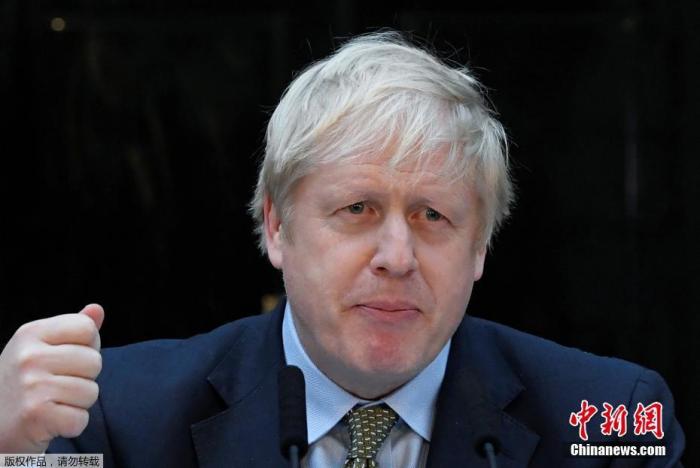China News Service, June 7 (Xinhua) According to a comprehensive report, on the 6th local time, British Prime Minister Boris Johnson passed the Conservative Party's no-confidence vote against him and remained as Conservative Party leader and British Prime Minister.
However, some British media pointed out that his victory in the no-confidence vote did not mean that the road ahead was smooth, and his prestige in the party was also greatly damaged.
File:British Prime Minister Boris Johnson.
The British Broadcasting Corporation (BBC) reported that during the new crown epidemic in the United Kingdom, Johnson's "party door" incident of drinking and gathering in violation of epidemic prevention regulations has caused great dissatisfaction within the ruling party and at the social level since its exposure, and calls for him to take the blame and resign have continued. .
On the 6th local time, the "1922 Committee", a group of British Conservative MPs, launched a vote of no confidence in Johnson. The results of the vote that day showed that 211 of the 359 Conservative MPs supported Johnson; 148 wanted him to step down, but failed to pass. 180 votes needed for a no-confidence motion.
Analysts believe that in addition to the "partygate" scandal, Johnson's government's ineffective handling of British economic issues, disputes with the European Union, and the Conservative Party's defeat in local elections have all contributed to Johnson's current predicament.
Under the rules, Conservative MPs are not allowed to hold another no-confidence vote for a year.
However, there is speculation that someone within the Conservative Party will push to change the rules and launch another motion of no-confidence against Johnson.
In this regard, "1922 Committee" chairman Graham Brady said, "Technically speaking, it is possible."
Labour leader Starmer said a "divided" Conservative Party was "backing" Johnson.
The leader of the UK Liberal Democrats said, "While Johnson is still in power today, there is no doubt that his reputation has been shattered and his authority has been completely lost."
The report pointed out that 42% of MPs in the vote expressed distrust of him, which also shows how unpopular Johnson is in the party.
The analysis pointed out that because of the secret ballot, the high number of dissenting votes now seems to indicate that some ministers or assistant ministers appointed by Johnson did not vote for the prime minister.
Johnson said the vote was "convincing and decisive".
The UK government and the Conservative Party will then come together to focus on "what really matters to the people", including tackling the rising cost of living.

